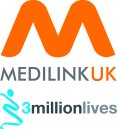
O2 Health 
O2 Health is helping health organisations find better ways to deliver healthcare. Our vision places the patient and the teams that care for them at the heart of what we do. In partnership with providers of care and support services, we seek to affect positive change in the way care is delivered, with fresh, innovative and cost effective solutions – in the home, the community and in hospitals.
About Help at Hand, our Mobile Telecare Service
Imagine you have in your care a Mrs Smith who is 85, suffers from dementia and is prone to wondering. Often in the night she leaves her house and walks to the park where she becomes confused and needs help. Without mobile telecare, she’s alone and no one knows where she is. Carers have to search for her without any indication of where she may be. This is distressing for Mrs Smith, takes valuable time for carers, has travel cost implications and means that other patients are not receiving the care they could be. This will be a common experience for many providers.
If mobile telecare was used…
Mrs Smith calls for help using a button on a mobile pendant when she became disorientated, and thanks to GPS services, she’s located quickly and safely.
Important things to know about mobile telecare
· It’s not just the elderly. For example, Helen Walker was diagnosed with a brain tumour in 1998 after she had an epileptic seizure. Her main concerns were for her young child (for the full video case study click here).
· Help can be summoned at the push of a button, inside or outside the home (as long as there is O2 network coverage).
· It allows “safe zones” to be set for users. If a person steps out of their pre-defined safe zone at night – i.e. out of the garden – an alert is sent to the carer who can take immediate action. The time and travel savings over the period of a person’s care could quickly add up.
· Fall-down sensors in a mobile pendent alert a carer to the problem and also where the person is, through GPS.
· Users and carers can decide what happens in the event of an incident, through a personalised website
· This type of technology will play an important role in redesigning health services.
What are the benefits?
· Service users get the care they need, when they need it, without high levels of one-to-one support or the need to stay at home more than necessary.
· Carers and family members can rest assured that their loved ones are getting the care they need and want without them being confined to a less independent life.
· Savings to a care provider can be significant because the user can be located quickly and any need for costly follow-on care can be minimised.







